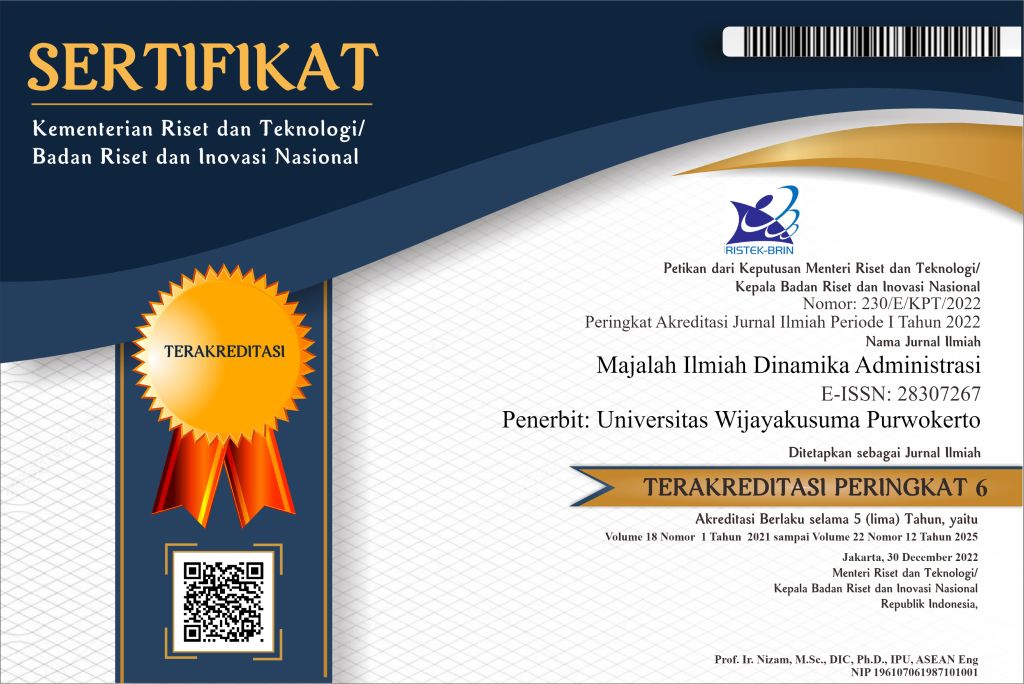TINGKAT KEPUASAN MASYARAKAT TERHADAP PELAYANAN KESEHATAN DI KABUPATEN SERANG
Abstract
This research is motivated by the reality of increasing social welfare problems in Serang City. Referring to BPS data (2023), with a total of 169,412 people with Social Welfare Problems (PMKS), this means they reach 23.51% of the total population of Serang City. This number has increased very significantly since 2021, namely 16.58%. The PMKS in question includes 26 (twenty six) categories based on PMS No.8/2012. By adapting a sequential mix approach, a quantitative survey was carried out at an early stage to identify various types of policy implementation problems using instruments synthesized from the policy implementation models of Dunn (2003), George Edward III (2018), and Rondinelli and Cheema (2012), Agustino (2006) which produced 8 (eight) variables and 28 (twenty eight) composite indicators. The survey findings were explored using a qualitative approach, analyzed according to the rules of Miles and Huberman's (1994) interactive analysis model, and produced 10 (ten) other strategic variables which were then completely used. The results of the research show that firstly, although problems were found evenly across the 8 (eight) variables and 28 (twenty eight) indicators studied, there were 2 (two) key variables that were determinants in the implementation of PMKS handling policies in Serang City, namely the variable leadership and policy environment. Second, alternative policies and/or implementation methods that are relevant to answer policy implementation problems are based on identifying the existence of influence variables, namely variables that are the most crucial elements in a system because they can act as key factors that determine the quality or effectiveness of policy implementation.
Full Text:
PDFDOI: https://doi.org/10.56681/da.v21i1.163
Article Metrics
Abstract view : 8 timesPDF - 4 times
Refbacks
- There are currently no refbacks.
Majalah Ilmiah Dinamika Administrasi (MIDA) Fakultas Ilmu Sosial dan Politik Universitas Wijayakusuma Purwokerto








